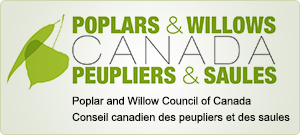Presence of Septoria musiva in western British Columbia
Septoria musiva is a serious poplar stem canker disease, (the fruiting phase is Mycosphaerella populorum), occurs naturally in North and South America. In North America, it occurs mainly east of the Rocky Mountains, where it infects hybrid poplars. In 2006, it was first detected west of the Rocky Mountains in Harrison Mills, British Columbia, where it affected several hybrid poplar stoolbeds and nearby plantations of hybrid poplar and black cottonwood (Populus trichocarpa).
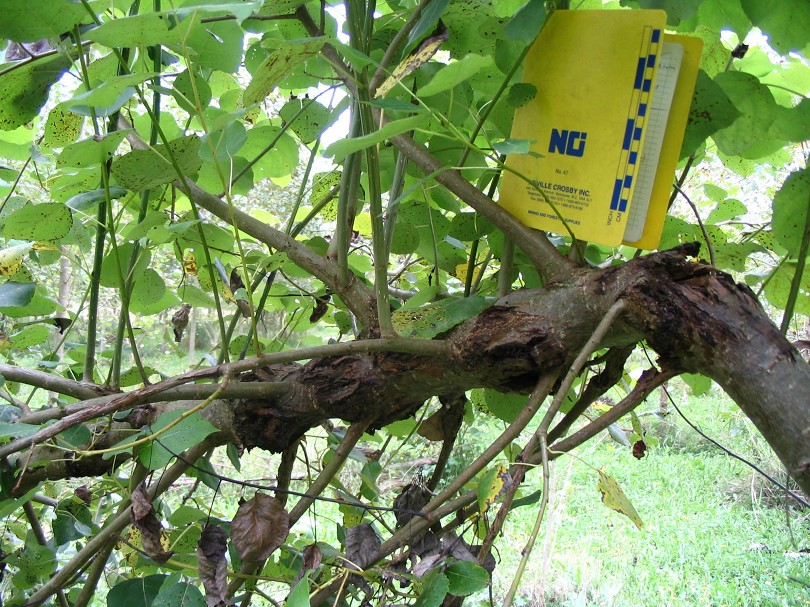 |
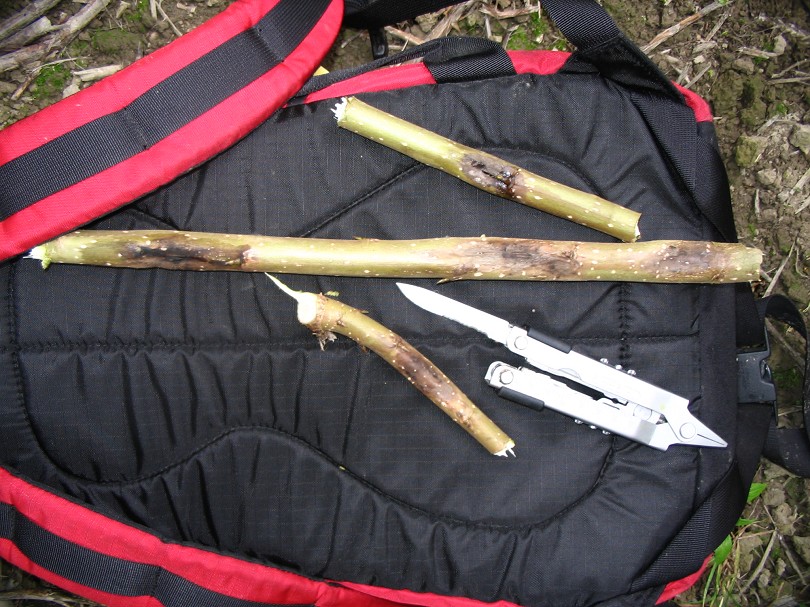 |
|
|
Severe Septoria musiva stem cankers |
|
Septoria musiva infected cuttings from |
The presence of Septoria musiva was confirmed in September 2007. As far as can be determined, the disease is present only in the Fraser Valley east of Vancouver. It is not known to be present anywhere else west of the Rocky Mountains. A voluntary quarantine on the transport of poplar was established in the province to prevent the disease from spreading further; its effectiveness will be determined over time.
The inadvertent introduction of Septoria musiva into the Pacific coast region of southwest BC sparked a genomics-based project at UBC in Vancouver. A breakthrough research paper was published by the UBC researchers that reported on the Septoria musiva genes responsible for the branch and stem lesions.
Kilby Black Cottonwood Trial
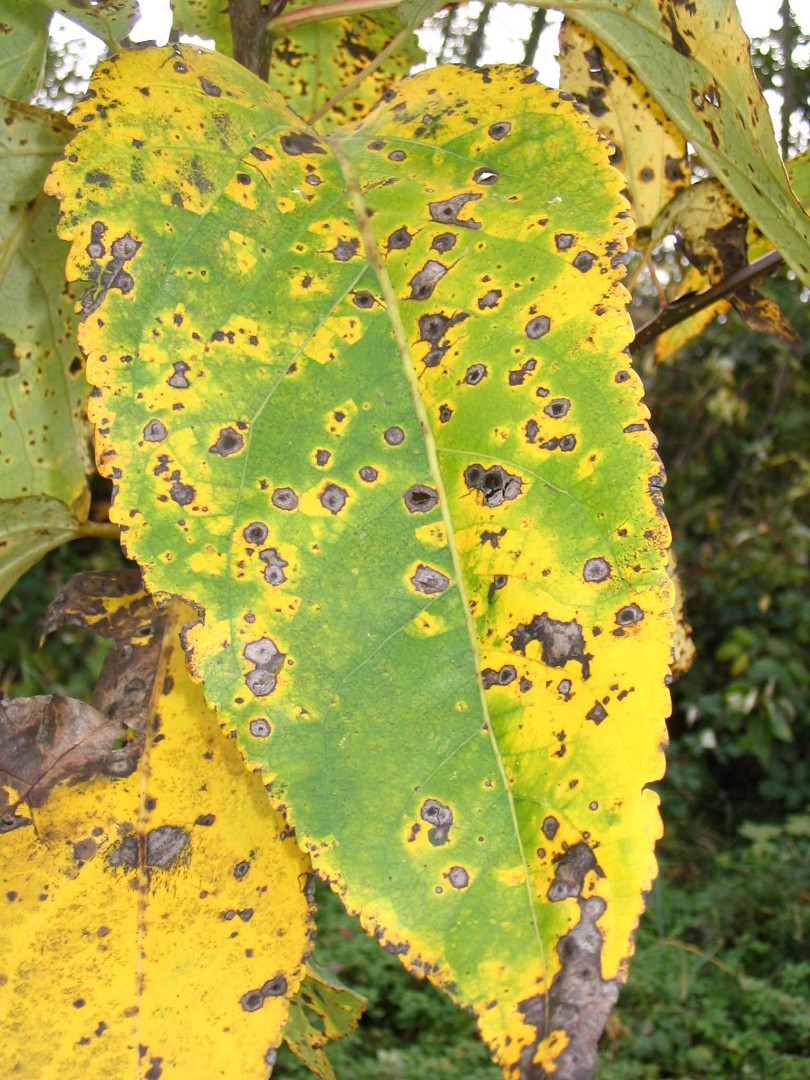 |
|
Septoria leafspot on black cottonwood - Kilby |
In the spring of 2007, the BC Government established a black cottonwood provenance trial at Kilby, BC, using genetic materials from northern BC to Oregon and longitudes of 121º to 128º W. The trial location was in the eastern Fraser Valley, not far from the 2006-discovered Septoria musiva infection. In 2010, this young plantation showed several trees infected with stem cankers and, in March 2015, it was formally surveyed for Septoria musiva. The final report on the survey is still pending, but interim results show approximately 30% of trees affected in this trial. The BC Government generously provided $8,000 to conduct the survey.
Of great interest is that an earlier DNA analysis of Septoria musiva leafspot at the Kilby trial showed consistent differences between provenances across the four replications. A similar pattern has also been observed in the presence of stem cankers after the March 2015 survey; final results of this survey are pending (May 2015).
Harrison Mills PopCan Trial
In 2011, UBC researchers established the PopCan trial, at Harrison Mills, BC, (near the 2007 Kilby trial), consisting of P. trichocarpa provenances from mid-latitude BC (54ºN) to northern California (39ºN). Because the California genotypes did not survive, the final provenance range is 45 - 54ºN and 120 - 128ºW. A 2015 survey showed approximately 10% of the trees infected with Septoria musiva - a lower infection rate than at the nearby Kilby plantation - possibly because maintenance was better and nearby infected stoolbeds had been removed.
Since the genomes of all the trees at this PopCan trial had been determined, each tree was assessed for the presence or absence of Septoria stem cankers. There is an overlap of 150 genotypes between the Kilby trial and the PopCan trial.
Selection of resistant hybrid poplar genotypes from quarantined plantation
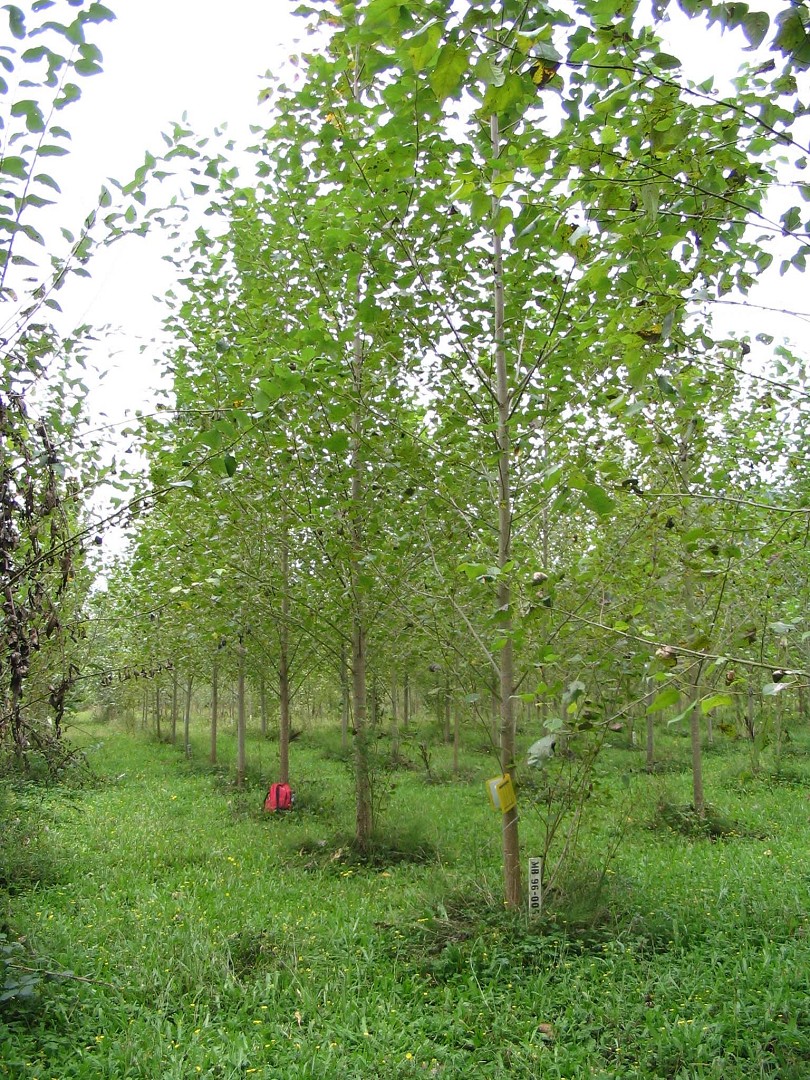 |
|
Septoria musiva-free |
The confirmation that Septoria musiva had established itself at the Harrison Mills poplar stoolbed and archive facility, owned by Kruger Products, L.P., effectively quarantined not only the PopCan trial, but also the hybrid poplar clonal archive the company established and maintained for many years. These archives currently contain hybrid poplars that were selected in a clone-site trial in 2007 for the absence of any Septoria musiva stem or branch cankers. Out of 271 mostly new hybrid poplars, 16 were selected and added to eight older genotypes, mostly hybrids that proved highly resistant or tolerant, for a total of 24 genotypes.
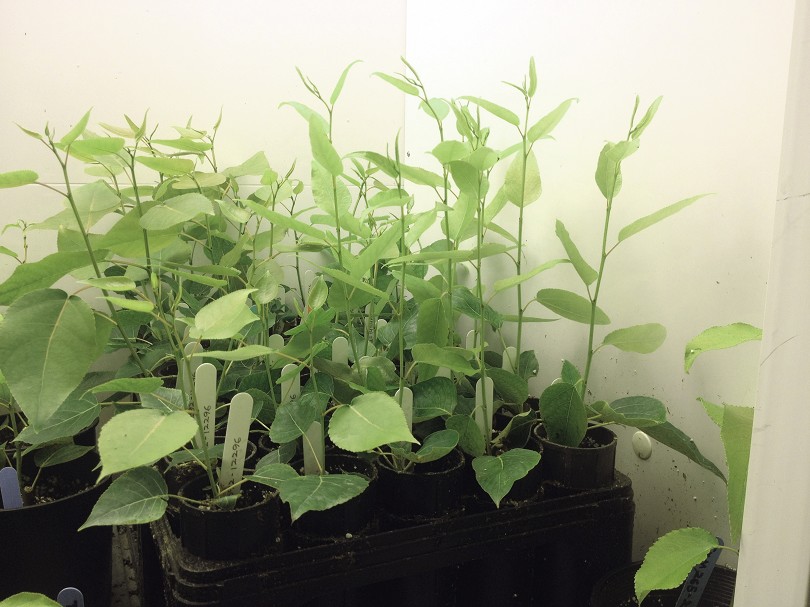 |
|
Selected hybrid poplar genotypes |
Unfortunately, Kruger Products, L.P. ceased operations at the Harrison Mills facility and put the land up for sale. To prevent the loss of these valuable genotypes, forest pathologists at UBC developed a quarantine protocol in cooperation with the provincial pathologist of the BC Government to grow hybrid poplar cuttings in growth chambers at UBC. With the full cooperation of the company, the 24 genotypes were collected in March 2015. After intensive screening for the possible presence of Septoria musiva leafspot during the propagation period in the growth chambers, possibly followed by a second propagation period, disease-free genotypes could be released for archiving in various locations outside the Septoria musiva quarantine zone, thereby guaranteeing the conservation of valuable poplar genotypes for future use. One possible archive could be established at the Totem Field clonal archive stoolbeds at UBC. The BC Government also has a suitable site near Saanich on southern Vancouver Island, which can accommodate the archive.
The Organizing Team for IPS VI set aside $5,000 from surplus funds to collect, grow and select these valuable poplar genotypes.
